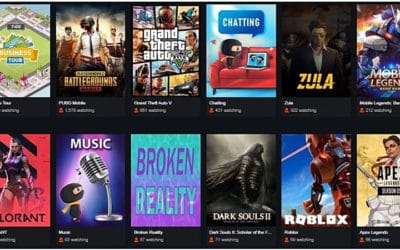Check out our curated Weekly Roundup of the breaking news and must-read – AI and crowdsourcing remaking the legal profession; Kickstarter creating over 300,000 jobs; Internet’s third wave coming and many more …
Artificial intelligence and crowdsourcing are remaking the legal profession
Tech advances allow new companies to harness networks of computers and people to sift through legal information and help lawyers prep cases. More here
The innovation upsurge may in part be generational. “If you make partner today in a law firm, and if you were in college with Google, you have different expectations of technology,” says Josh Becker, CEO of Lex Machina. The company tracks the activities of lawyers and judges using an artificial intelligence technique called natural language processing (NLP) to analyze court documents and figure out things like how a particular judge tends to rule on particular types of cases. It can also ferret out types of cases, such as patent or trademark, the specific IP a claim asserts, and all the attorneys involved. Big money is not a requirement. The legal profession is joining other industries, says Ambrogi, where entrepreneurs with a good idea can take on giant players, such as research and publishing firms Bloomberg Law, LexisNexis, and Thomson Reuters Westlaw. “Now it’s law students, or younger lawyers who just aren’t happy with the way things are getting done and will get an idea and try to develop it,” says Ambrogi. PacerPro, for instance, is bootstrapped mainly by the family of its founder and CEO, Gavin McGrane. The company puts a user-friendly interface on the government’s clunky PACER database of federal court cases.
Kickstarter has managed to create over 300,000 jobs
This story shares details on how Kickstarter has managed to create over 300,000 jobs through new products
The benefits to projects on Kickstarter is that instead of a group of people deciding whether or not a product is viable, it is left to the public whom the product will be sold to. This in turn has created a ton of amazing new products, like the Pebble smartwatch and the Oculus Rift. However a side effect of those new products is that it has also managed to create a ton of jobs. Successfully funded projects are usually a sign that yes, this is something the people want. In a study (via Engadget) by a certain Professor Ethan Mollick of the University of Pennsylvania, it seems that Kickstarter has so far managed to create over 300,000 jobs. According to Mollick, 283,000 those jobs are part-time jobs, while 29,600 are full time jobs. Kickstarter has also successfully led to the creation of 8,800 companies. Of course not all the companies created on Kickstarter have been successful. We have seen many projects fail to reach their funding goals.
Decentralized blockchain P2P lending is taking off!
FinTech startups have begun looking into the possibility of implementing the blockchain technology into platforms that could grant the underbanked users access to funds
Over the past few years, after the introduction of the blockchain technology and its wide range of use cases, entrepreneurs and FinTech startups have begun looking into the possibility of implementing the technology into platforms that could grant the underbanked users access to funds. The way banks collaborate with investors to lend money to an average person is fairly transparent. Thus, the fact that this traditional method takes advantage of poor people is familiar, because of the banks’ business model of providing a solid return to their investors. The birth of FinTech, Bitcoin, and the blockchain technology has begun to revolutionize and disrupt this tradition of loaning and recently, this has become a trend in many countries. Since the beginning of 2016, a number of blockchain and FinTech startups have received venture capital funding and attention from financial investors because of their business model of offering opportunities to average people to loan money, while still providing the same advantages investors received by funding or granting banks with their money.
Digital payments in India to reach $500bn by 2020
Digital payments industry in India will grow 10 times to touch $500 billion by 2020 and contribute 15% of GDP
India is headed for an exponential increase in digital payments over the next four years, according to a new study by Google (Alphabet Inc.) and Boston Consulting Group released on Monday. “Spurred by smartphone penetration, and supported by progressive regulatory policy, the digital payments industry is at an inflection point and is set to grow 10x by 2020,” said Rajan Anandan, vice-president of Google, South-East Asia and India. “It is telling that half of India’s Internet users will use digital payments and that the top 100 million users will drive 70% of the GMV (gross merchandise value)—a clear indicator of the growing importance of the digital consumer,” Anandan added.
P2P lending growth, what’s the perfect rate?
The Economic Times question if India’s P2P lending is growing fast enough
The Indian P2P space, in fact continues to grow steadily and see good traction. While there are no official figures, if one has to extrapolate our figures, we have grown eight times in the last six months in our loan disbursals. In fact, this is true for the entire Fintech space. In 2015 the space exploded, but it has not shown signs of weakening. According to a Tracxn and Blume Ventures report about $103 million was raised across 22 rounds in 2015 in the Fintech space. About halfway through the year, 2016 has seen $68 milion being raised and if this trend continues, this year would be better than last year.
A new internet is on our way!
We’re about to face a host of new opportunities and challenges. Are you ready for the Internet’s third wave?
According to Steve Case, author of The Third Wave, even talking about things being connected to the Internet will become meaningless. Everything (and everyone) simply will be. Houses will be able to talk to phones. Alarms to tablets. Roads to cars. Machines will talk to machines. And almost everything will talk to you. Interconnectivity will increase tenfold. The Internet won’t be something we’ll consider accessing. It will be hard-coded into day-to-day life. More and more people around the world will have access to the Internet, to machines and to each other. This means that a brand’s audience will keep expanding – but there will also be more competition when it comes to reaching that audience. If you think your audience’s attention deficit is bad now, IOT is only going to offer more distractions. With all the added clutter, one-dimensional communication won’t cut it. Content as we know it will be forced to morph into dynamic, personal experiences. Fighting for attention in this new era of the Web means you’re going to have to change the way you do things. You’ll need to open up to the idea of partnerships.
Image: fastcompany
There are many fantastic stories out there. What else caught your eye this week? Did you come across some breaking news or a good thought piece? Do share them with us…




Lovely! #Crowdsourcing #Innovation #Fintech